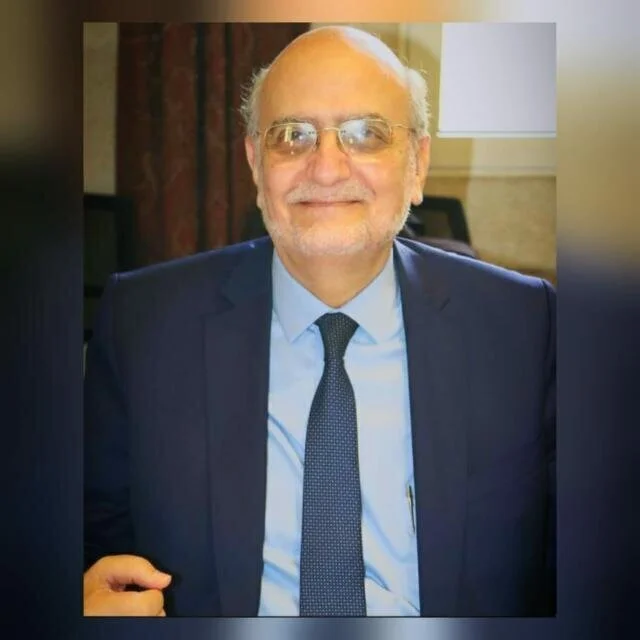Three years elapsed
Dr. Michel E. Abs
Secretary General of the Middle East Council of Churches
On the fourth of this month, two days from now, it will be three years since the historic explosion that shook Beirut, Lebanon, and the world. This explosion was classified as one of the most powerful in human history after atomic ones.
At the time, under the pressure of the disaster’s horror, the people’s pain, and the anger of the masses, the Lebanese state promised to uncover the circumstances of the explosion and arrest those responsible for it within two weeks of its occurrence.
Since that day, the Lebanese have been waiting for the truth that has not come, and seems like it will not come.
About 225 people perished, 6,000 were injured, 35,000 housing and production units were destroyed, the third of the capital dysfunctional and its people displaced, and entire neighborhoods were no longer suitable for human existence. All of this did not constitute a sufficient incentive to mobilize the remorse of people neither those holding responsibilities and positions who consider themselves protectors of people’s destinies and interests.
It is the silence of caves and, at best, the filling of the media space with gossip, hypocrisy, procrastination, blasphemy and blaming the others.
This explosion produced volumes of narratives of people’s suffering. History will remember it for a long time to come, and much will be written about it. However, no tangible results as yet will heal the souls of the victims’ families who insist on knowing who is responsible for the loss of their loved ones.
Each story of a victim is a tragedy by itself. The story of the ones who perished is as painful as the story of the ones who were wounded, like the story of the disabled, like the story of the one who lost a lifetime’s harvest in their home or workplace.
We did not need this catastrophe to emphasize how much the state in Lebanon is a federation of institutions that have practiced failure and indifference, and even specialized in hostility towards their people, to those who are responsible for safeguarding their lives and interests.
We do not mean absolute generalization, and we can only pay tribute to institutions or individuals in institutions who kept their pledge of responsibility on the day they integrated the job, and some of them became martyrs. However, the fecund corruption in Lebanon, added to the spirit of irresponsibility, made of the Lebanese citizen a creature without human value. They are only fit to be either a worker with miserable salaries, or cronies who cheer the criminals of war and peace in the country, or a consumer who accepts all the conditions of inhuman producers.
It is a society of unconditional and endless exploitation. It’s the rule of vampires who have mastered hiding behind the language of humanity and piety.
This class has discovered that political sectarianism is the best way to guard corruption, so they adopted it and made it a barricade that protects them from any accountability or punishment. Accountability, the cornerstone of modern democracies, does not exist altogether in Lebanon.
A people who has turned into herds, walking behind corrupt people, and if there is someone to urge them to be aware, they stir up an incident of a sectarian nature from here or there.
We have realized that these people are ready to die for those who starve them… What is important is the sect and its political leadership symbol, whatever it is.
Because of such a culture and this mentality that governs our society in Lebanon, in the country of hundreds of thousands of educated, creative people and geniuses, no one dared to reveal the truth about one of the biggest explosions in modern history.
The port explosion itself, and its investigation, is only an indication of a culture of negligence, irresponsibility and lack of accountability.
The very fact of two elderly women falling last week into the pit of a building elevator and lost their lives in the most heinous ways because the elevator maintenance contractor and the building managers did not notice the need to lock the elevator doors on the floors or even put up maintenance signals, is an indication of the culture of fading responsibility that we mentioned.
The one who neglected to put up signs and protect the residents of the building from the dangers of elevator maintenance is the same one who brought explosive materials into Beirut’s port and neglected them for a decade until they were either detonated or exploded.
This is how our life in Lebanon is: on the crater of a volcano, on the brink of an abyss, subject to stupidity, corruption or ignorance. The matter cannot be changed by decree but by diligent legislative, educational and media work that may take decades.
This indifference is a form of collapse of social capital that we focus on at the Middle East Council of Churches. Sociology tells us that social structures collapse all together and none of society’s structures can survive if the rest collapse.
We have a long and arduous road ahead before regaining our normal lives worthy of people in the twenty first century.
Do you understand now why Beirut’s port exploded and why those responsible have not yet been arrested?

